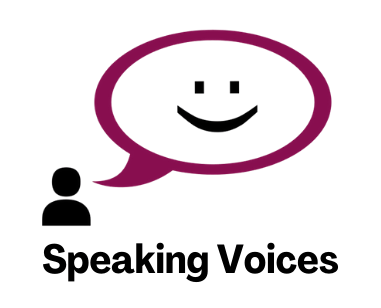Accent training sometimes stems from accent anxiety, which is a common experience, especially for those who speak English as a second language or have moved to a new region that speaks English. In professional situations and public speaking, the pressure to “fix” an accent can feel overwhelming. The truth is, your accent is not broken, it’s not something you have to fix. The real goal is not to erase your identity, but to communicate clearly and confidently, celebrating the qualities that make your voice unique. Here is how to move beyond accent anxiety and embrace your sound with pride and purpose.
Understanding Accent Training and Its Impact on Communication
Many professionals and speakers worry that their accent will make them seem less credible or competent, and yes, there is accent bias, but this mindset can undermine confidence and stop you from sharing your ideas fully. However, your accent is a reflection of your journey, your culture, and your experiences. It is a part of what makes you memorable.
Accent training is not about erasing your background, but about giving you the tools and confidence to speak clearly and be understood, even with an accent. It is common for people to feel pressure to “sound British” or to focus on accent training in order to fit in at work or in social situations. This pressure can come from colleagues, friends, or even from within, especially in environments where a particular accent is seen as the standard. The reality is that diversity in speech is valuable. The most important goal in communication is clarity, not conformity. When you focus on making your message clear, you can connect with any audience, regardless of your accent.
The Power of Clear Speech: Articulation Over Perfection
You do not need to sound exactly like a native speaker to be an effective communicator. Instead, focus on developing clear articulation and expressive speech. Practise pronouncing key vowel sounds that are important for your work or daily life. Your native language rhythm and the British English rhythm are going to be very different. British English rhythm goes up and down whilst you are saying the sentences, you need a lot of energy to stop yourself sounding monotone.
But the goal is to be understood, not to achieve perfection. These techniques are used by all great public speakers, whether they have a regional accent, an international background, or anything in between. If you are interested in training your accent for clearer speech, start with the sounds and words that matter most in your daily interactions. Write down a list of words or phrases you use on a daily basis and start there.
Building Confidence In Your Unique Voice
Confidence is at the heart of powerful communication. Embracing your natural sound can help you feel more authentic and relaxed when speaking. Remember, audiences connect with speakers who are genuine. If you are worried about a particular sound or word, practise it in context, but do not let it overshadow your message.
Celebrate the qualities that make your voice memorable and relatable. Your story, experience, and personality are just as important as your pronunciation. Many successful professionals and public speakers have strong accents and use them as a strength. Your unique sound can set you apart and help people remember you.
If you find yourself feeling anxious, try a simple grounding technique before you speak. Take a deep breath, remind yourself of your expertise, and focus on the value you are bringing to your audience. Over time, these small habits can build lasting confidence. If you wish to pursue accent training for greater clarity, do it with the goal of expressing yourself, not erasing your individuality.
Adapting Without Losing Yourself: Practical Tips for Everyday Communication
Adapting your speech for clarity does not mean erasing your accent. It is about making small adjustments so others can understand you easily, especially in professional or cross-cultural settings. You can start the accent training process, here are a few practical tips:
- Record yourself speaking and listen for patterns in your speech. Are there certain words or sounds that often cause confusion? Practise these in short phrases and sentences.
- Listen to native speakers, but focus on how they use rhythm, stress, and intonation, not just their pronunciation. These elements can have a big impact on clarity.
- Seek feedback from trusted colleagues, friends, or a voice coach. Sometimes, what you perceive as a “problem” is not even noticeable to others.
- Use visual aids or written summaries in meetings to support your spoken message. This can help bridge any gaps in understanding.
Accent training is about building skills, not “fixing” flaws. If you want to focus on training your accent for professional environments, prioritise clarity and expression rather than imitation.
When To Seek Professional Support
If your accent is holding you back from opportunities or affecting your self-esteem, consider working with a voice coach. Professional accent training can help you develop a clear listening ear where you are able to hear how you sound and correct yourself when you are speaking in real time. This creates confident communication skills while celebrating your individuality.
In my practice, I work with clients to identify their strengths, address areas for improvement, and build a toolkit of techniques for every speaking situation.
Ready to Speak Clearly and Confidently?
The focus is always on clarity, expression, and authentic self-presentation. You do not need to erase your accent to be a powerful communicator. Instead, you can learn to adapt when needed, while still honouring your roots and your journey, this is what accent training can help you do. If you are looking for accent training, a coach like me can help you find your authentic sound and speak with confidence. Book a free discovery call to discuss your goals and start your journey to clear, authentic, and confident communication.
Book your call now and let us celebrate your unique voice together.

